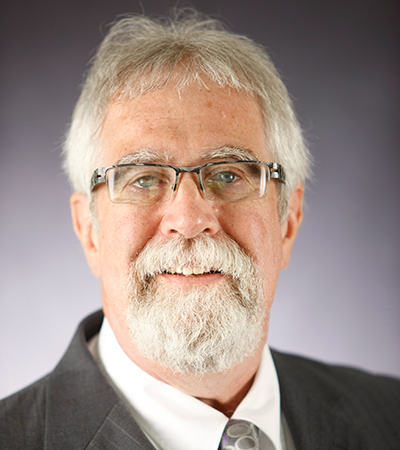A discovery that could protect the eye and the brain
By Jan Jarvis

UNT Health Science Center eye researchers have discovered a chemical that may help prevent irreversible vision loss caused by glaucoma and other retinal diseases.
Nerves in the inner retina carry signals through the optic nerve to the brain for vision recognition, said Abe Clark, PhD., Executive Director of UNTHSC’s North Texas Eye Research Institute.

“When the cells in the retina are damaged, then the cells that they connect to in the brain also become damaged,” Dr. Clark said. “When you lose certain nerves in the retina, you lose nerves in the center of the brain.”
But Dr. Clark and his team found that it may be possible to protect both the eye and brain using a chemical known as a JNK inhibitor. The research group exposed cultured retinal cells to several toxic insults while also using a mouse model of retinal ischemic stroke, resulting in nerve cell death in both the retina and brain.
By treating the retina cells with this chemical, the researchers were able to protect against ischemic nerve cell death. The discovery could lead to new therapies to prevent vision loss due to glaucoma and other retinal diseases. The work, which was supported by a grant from the Department of Defense, was published this month in Molecular Neurodegeneration.
“We suggest that the JNK signaling pathway is a prominent and critical path for neurodegeneration due to retinal stroke,” Dr. Clark said. “Treating the nerves with this inhibitor totally protected the retina and the nerves in the brain from functional damage.”
The discovery is believed to be applicable to a number of eye diseases, including glaucoma and diabetic retinopathy, he said. It could also have implications for brain diseases caused by blood flow blockage.
“The retina is part of the brain, and what we might have found is a way to protect the nerves in the brain from similar insults like a stroke,” Dr. Clark said. “We are excited about this as a potential new therapy for treating nerves in diseases with compromised blood flow.”





Social media